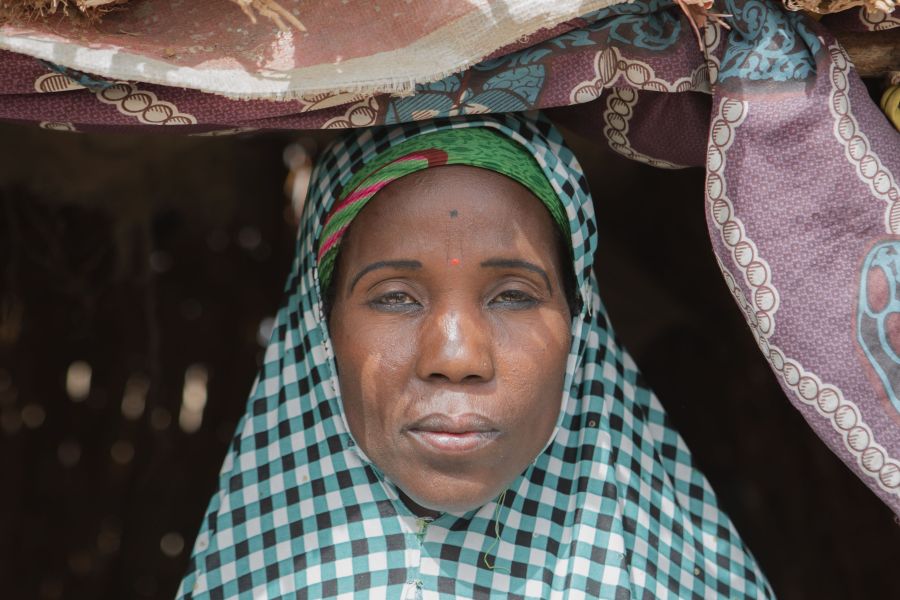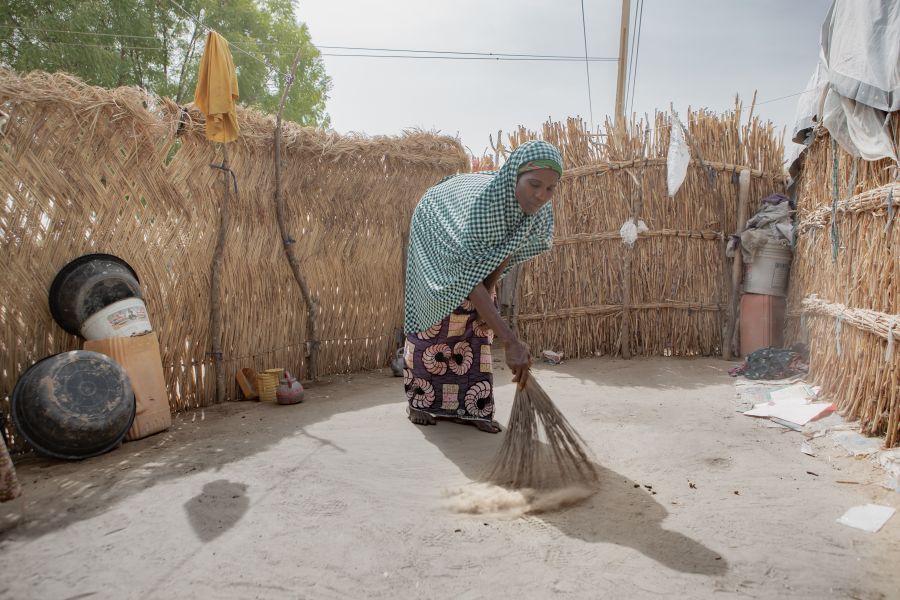Escaping Boko Haram: 'I thought I had lost my mind'

On a patch of dusty land in the sprawling camp for internally displaced persons in Maiduguri, the capital of Borno state in north-eastern Nigeria, 40-year-old Kulu quietly hums a tune as she sweeps the ground outside her hut; a flimsy shelter of dry stalks and a tarpaulin. She cuts open a small sack of rice, and spreads the contents on a straw mat on the floor. In the corner, a pot is balanced on a stone stove. Kulu is about to prepare lunch for her herself and her children, a household chore she has almost forgotten since she fled her village in Baga, a town on the border with Chad.
Three years ago, Baga was overrun by the terror militia Boko Haram in an attack that reportedly claimed over 2000 lives. When she heard the fighters coming, Kulu grabbed her children, and made for the bushes in order to get out of the village. Her husband, however did not make it; he was shot right before her and her children, and died instantly. Kulu was also pregnant at the time.
Depression after fleeing Boko Haram
Over the course of nine years, Boko Haram’s terror has claimed over 20,000 lives and brought untold suffering to millions around the Lake Chad region. The militant group came to the world's attention four years ago when fighters abducted 276 girls from a boarding school in the town of Chibok in northeastern Nigeria. In the meantime, the Boko Haram insurgency has morphed into a serious humanitarian emergency affecting over 6 million people in the entire region. Fearing violent attacks, people have fled their homes and farm lands, and in many rural villages, life has come to a complete standstill. Every day, women, children and entire families come to camps for internally displaced persons in Maiduguri.
Kulu and her children walked for three days until they reached the next village. That village also came under attack by Boko Haram, and she had to flee again. After many days on the run, Kulu finally arrived in Maiduguri, and went to a hospital in the town. Unfortunately, she had lost her baby due to the strains of her escape. She received treatment for her physical injuries, but the trauma of losing her husband and unborn child lingered. "I was so sad I couldn't eat for days,” she says. “All I could think about was that my husband had died. When I fell asleep, I dreamt about my husband. I saw him get shot over and over in my dreams. I thought I had lost my mind."

Water and other essentials
Today, Kulu’s condition seems to be getting better, and she is more open to talk about her ordeals. She has had to be taken to the hospital three times because of the psychological consequences of her experiences. But with the help of her brother, she slowly got back on her feet. Despite the challenges she faces as a widowed young woman, displaced in her country, Kulu is grateful for the help she has received. “At least, I'm happy now, and I thank God for sending someone to help me,” she says. “Malteser International has also done a lot to help me. They gave me a set of water canisters, bathing soaps for the children, detergents, a kettle, bandages, a bucket and a torch."
Since August 2017, Malteser International has been working in the IDP camps to improve access to clean drinking water, while promoting good sanitation and hygiene. Together with a local partner, we erect and maintain boreholes and latrines inside the camp. One of our wells is located near Kulu’s hut, which makes it easier for her to get water for her family’s needs. “This makes my life easier,” she says, before proceeding, “Before, I had to walk for 30 minutes to get water."
The project is supported by funds from Germany’s Federal Foreign Office and the Seliger Gerhard Stiftung.
(April 2018, Katharina Kiecol)








